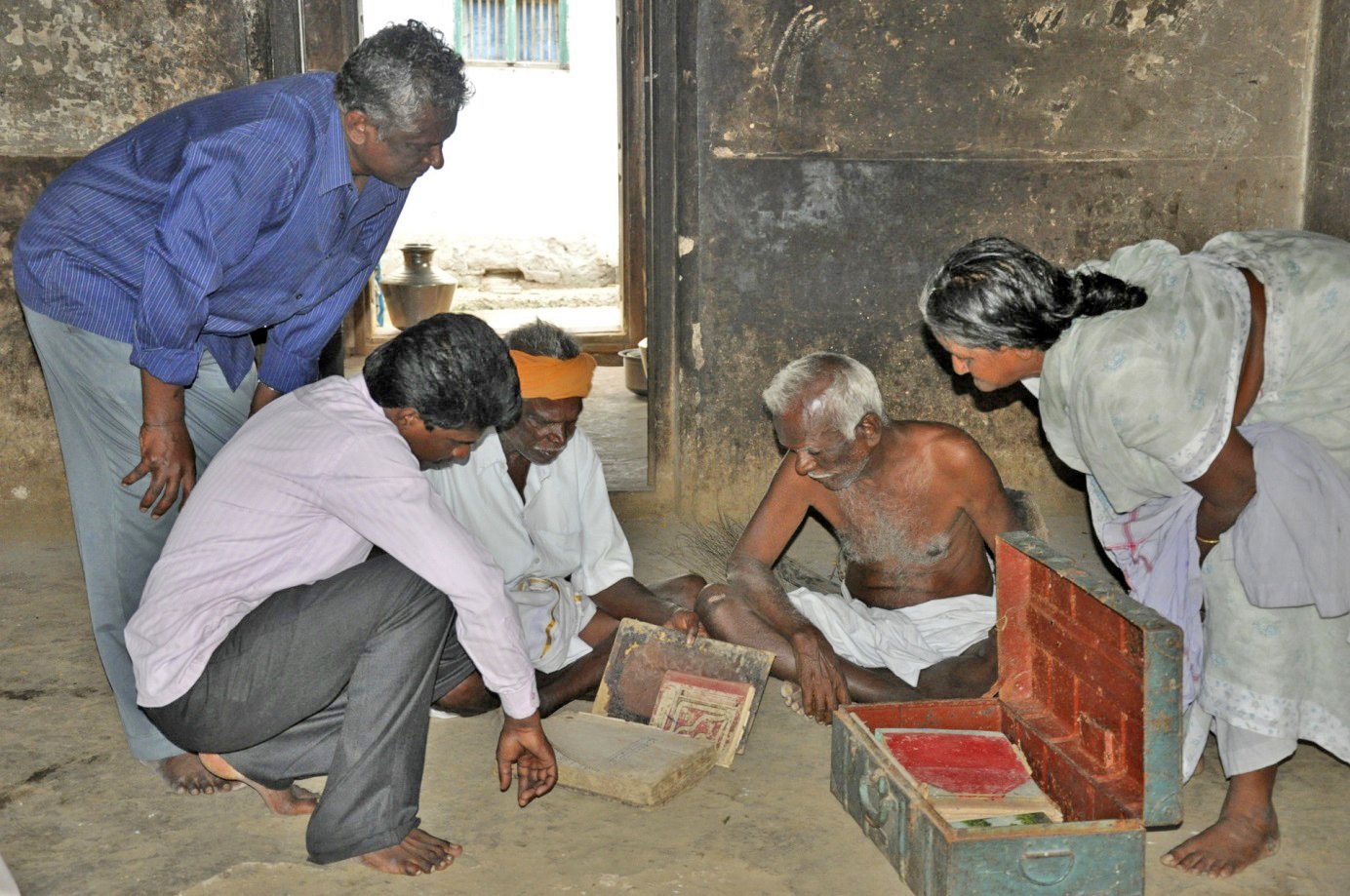Vie scientifique | Journées d'études
DATAH | Exploring the Digital Archive of Tamil Agrarian History 1650-1950
3 day seminar (French Institute of Pondicherry)
This 3 day seminar will expose, explore and question a digital archive of Tamil agrarian history (DATAH) which was constituted during a five year project (2010-2016) by a team of the Social Sciences Department of the IFP. This project was funded by the British Library’s Endangered Archives Program (Arcadia).
Alongside the presentation of the project (day 1) and the seminar (day 2) during which historians and anthropologist will present their personal readings of the archive, an exhibition will be held on the back wall of the IFP both for this seminar as well as for the Pondicherry Heritage Festival. Further a roundtable (day 3) will be devoted to exploring the feasibility of pursuing the collection of documents and to assessing strategies and constraints of digital archives in Tamil Nadu with several institutional partners.
Program DATAH
About DATAH
The aim of the DATAH project was to create a digital archive of documents of socio-historical relevance to historians, anthropologists, sociologists and linguists. Most of the documents digitized during this five year project (2011-2016) are destined to disappear in the near future given both the very humid climate of southern India and neglected condition in which they are stored. These documents, recorded on paper, palm-leaves and copper plates provide a rare and unique opportunity to glimpse a variety of aspects of social history of village life in the more remote parts of the Tamil region at a time when new power structures and social identities were being forged both with and against local traditional feudal systems and British colonial legislations.
One of the specificities of DATAH is that the documents we digitized are scattered in the homes of Tamil villagers, especially the descendants of traditional power holders, who are unaware of the importance such documents can have for understanding social history. Though unaware of the scholarly value, the document holders are not prepared to part with their forefathers’ documents, such as depositing them in the local archives- as was recently demonstrated by the failure of the Madurai District Archives and Historical Records office to collect such documents despite repeated appeals to the public. Furthermore, local archives do not have the means to carry out fieldwork and will not pursue digital preservation of documents that are not destined to be in their keep. The documents contained in the DATAH archive open new avenues of analysis at the level of micro-history of rural India, a field for which there is a lack of research material since the colonial Revenue Records as well as the “Village Notes” of the Settlement Surveys do not contain the types of documents that were collected.
DATAH presently contains 82 collections comprising 5 314 digitized documents and consisting of 83 378 images. These documents are viewable on the website of the EAP:
EAP 314: 10 collections, 652 documents, 3 460 images
http://eap.bl.uk/database/overview_project.a4d?projID=EAP314
EAP 458: 36 collections, 3 039 documents dated between 1777 and 1985, 36 774 images
http://eap.bl.uk/database/overview_project.a4d?projID=EAP458
EAP 689: 36 collections, 1623 documents, 43 144 images
http://eap.bl.uk/database/overview_project.a4d?projID=EAP689;r=41
Document(s) à télécharger
Les sites du CEIAS
- SAMAJ | The South Asia Multidisciplinary Academic Journal
- CEIAS - Facebook
- CEIAS - Twitter
- CEIAS - Newsletter
- Le Bulletin de la Bibliothèque
- Régionalisme & cosmopolitisme
- DELI | Dictionnaire Encyclopédique des Littératures de l’Inde
- DHARMA | The Domestication of “Hindu” Asceticism and the Religious Making of South and Southeast Asia
- TST | Texts Surrounding Texts
- STARS | Studies in Tamil Studio Archives and Society 1880-1980
- I-SHARE | The Indian Subcontinent’s Shared Sacred Sites
- Sri Lanka et diasporas
- Sindhi Studies Group
- Carnet du Master Études asiatiques
- Master “Asian Studies”
- Social Sciences Winter School in Pondicherry
- Caste, Land and Custom
- Musiques indiennes en terres créoles
 Actualités
Actualités
Devenir juifs : conversions et assertions identitaires en Inde et au Pakistan
 Débat - Mardi 9 mai 2023 - 14:00Présentation« L’an prochain à Jérusalem ! », scande un homme portant une kippa dans une synagogue de Karachi au Pakistan. Ses paroles sont répétées en chœur par les membres de sa communauté, un groupe comptant près de trois cents personnes qui s’autodésignent par (...)(...)
Débat - Mardi 9 mai 2023 - 14:00Présentation« L’an prochain à Jérusalem ! », scande un homme portant une kippa dans une synagogue de Karachi au Pakistan. Ses paroles sont répétées en chœur par les membres de sa communauté, un groupe comptant près de trois cents personnes qui s’autodésignent par (...)(...)
Le Centre d'études sud-asiatiques et himalayennes (Cesah), nouveau laboratoire de recherche (EHESS/CNRS) sur le Campus Condorcet
Échos de la recherche -Depuis le 1er janvier 2023, l'EHESS, en tant que co-tutelle, compte un nouveau centre de recherche né de la fusion du Centre d'études de l'Inde et de l'Asie du Sud (CEIAS - EHESS/CNRS) et du Centre d’études himalayennes (CEH - CNRS) : le Centre d'études sud-asiatiques et h (...)(...)
Centre d'Études de l'Inde et de l'Asie du Sud
UMR8564 - CNRS / EHESS
54 boulevard Raspail
75006 Paris, France
Tél. : +33 (0)1 49 54 83 94
Communication :
nadia.guerguadj[at]ehess.fr
Direction :
dir.ceias[at]ehess.fr
La bibliothèque du CEIAS
Maison de l'Asie
22 avenue du Président Wilson 75016 Paris
54 boulevard Raspail
purushartha[at]ehess.fr


